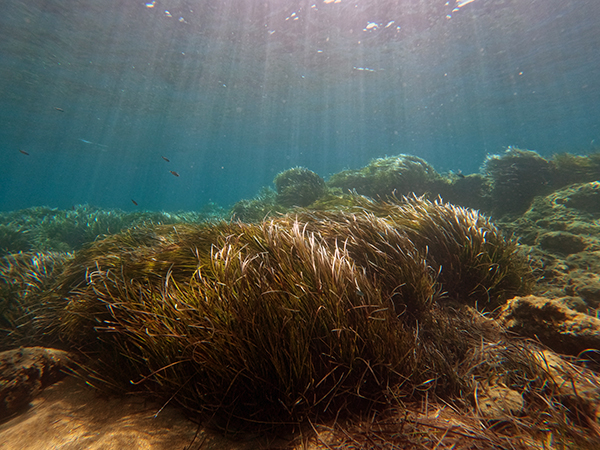VOLUNTEER INFORMATION
Become a part of our international team and help us protect the vulnerable ecosystems of Kefalonia while getting hands-on field research experience, meeting new people, and having fun!
Our research focuses on the study of the protected Posidonia oceanica seagrass meadows and the sand dune systems, categorised as vulnerable on the Red List. In addition to these ecosystems being important for the nesting and foraging of endangered sea turtles, they are important biomarkers for climate change, and so much more.
Dive in and participate in our Marine and Coastal Conservation Programme to help protect the large Posidonia seagrass meadows and sand dune systems that can be found around the beautiful island of Kefalonia, Greece. You will gain research experience, discover all the marine organisms that thrive within the protected Posidonia and explore the sand dunes and their critical role in climate change.
Requirements
- 18 years of age or older
- Strong swimmers and have had previous experience snorkeling
- Comfortable living in a communal environment with shared rooms and facilities and working closely with others
- Must have travel health insurance
- Comfortable riding a bicycle on hilly terrain
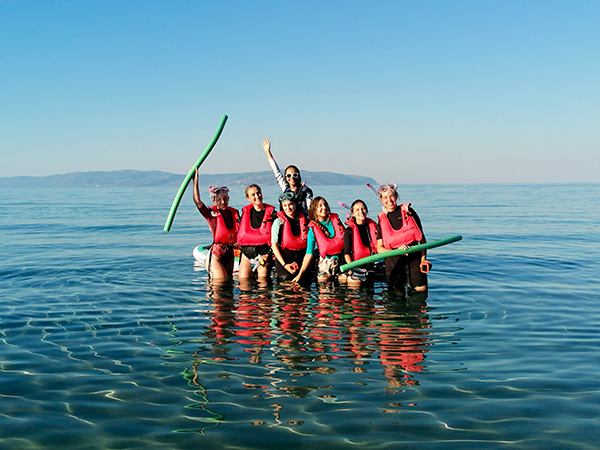
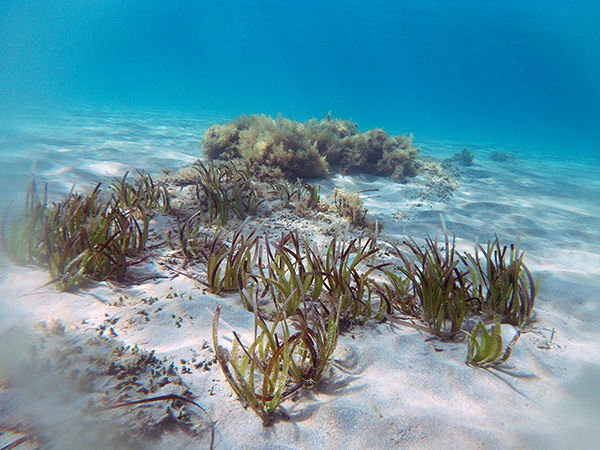
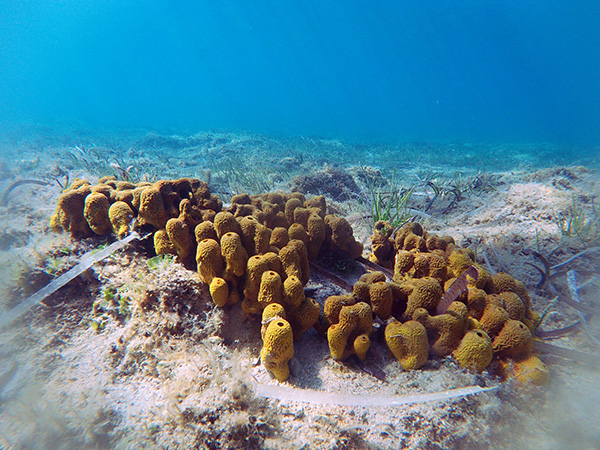
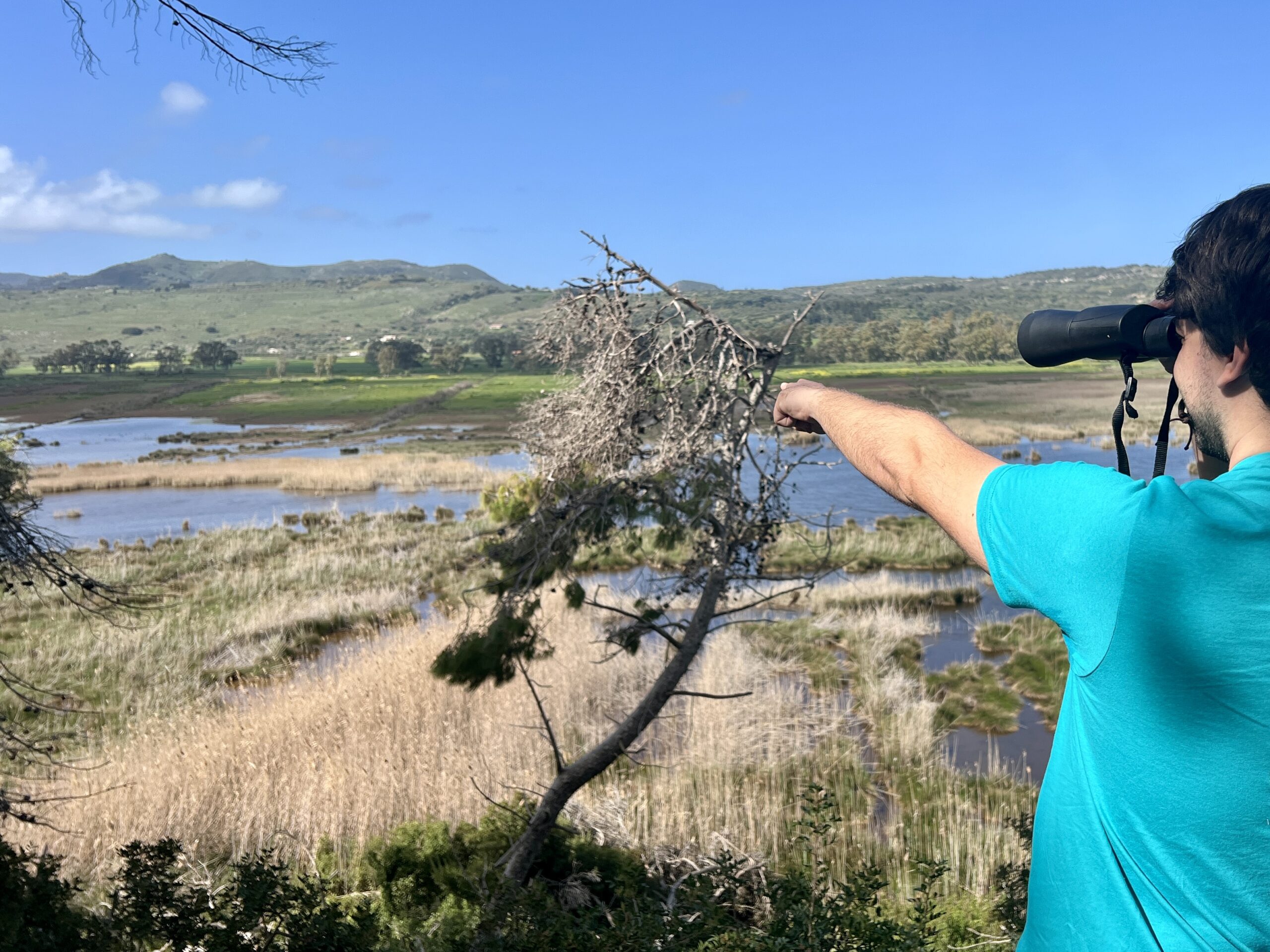
Field Work
Our aim is to study the Posidonia oceanica seagrass meadows and the sand dunes along south-east Kefalonia. Our focus is the coastal and nearshore marine zone of the Mounda Peninsula and Svoronata Area. Seagrass meadows are a larger carbon sink than the rainforest and play a critical role in mitigating climate change. They form an important ecosystem, providing habitats and nursery grounds for many marine animals as well as other organisms. Sand dunes and their vegetation form a dynamic barrier between sea and land and a specialized ecosystem that is impacted by development and accelerated erosion.
The coastal and marine study areas will be mapped with a drone at regular intervals. Volunteers will not need to have drone skills but will have an opportunity to learn some of the latest uses of drones for environmental science. Surveys over the sea will help locate seagrass meadows and plan snorkel surveys. On the shore, sand dunes will be surveyed by drone to create both topographic and three-dimensional maps, which will help study the ecosystem and track changes over time. Snorkeling teams will survey the nearshore area to collect geotagged photographs of the seagrass meadows. These will later be analysed to identify species, the types of meadows, and their current state as well as changes over time.
The coastal sand dunes will be mapped and studied with beach profile and species identification surveys. The current state of the dunes will be studied, as well as their trends over time. The presence of plastics and other detrimental factors in both the marine and the coastal ecosystem will be recorded, and some shifts will focus on collecting those for recycling or disposal. Volunteers will contribute their time and skills to help collect vital data and help support critical marine conservation work and also understand how marine ecosystems are impacted by direct human activities and by climate change. Data collected by the project will help create one of the most detailed datasets on the coastal and marine ecosystems in the area.
Specific to the Svoronata Field Station, coastal birds will be observed in key monitoring areas. Surveys will contribute to Cornell University’s e-Bird citizen Science database by conducting timed transects or point counts and reporting incidental sightings of coastal and pelagic birds using the app e-Bird.
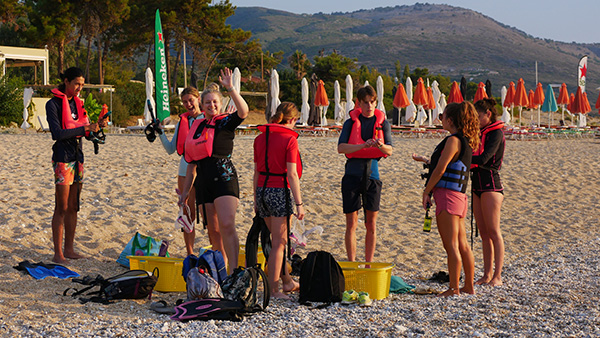
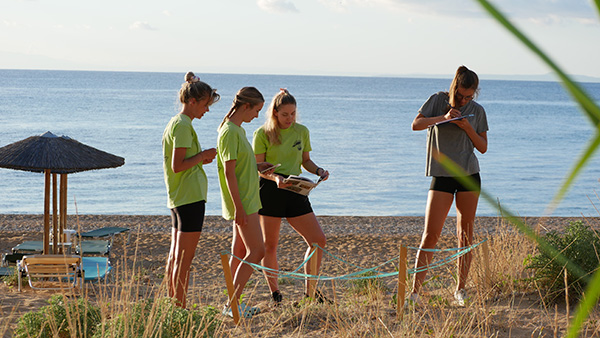
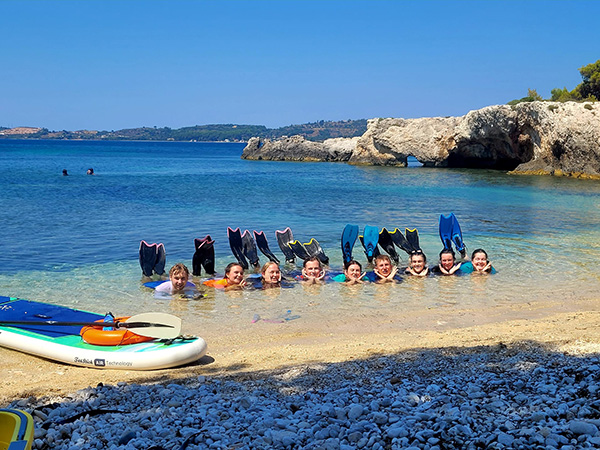
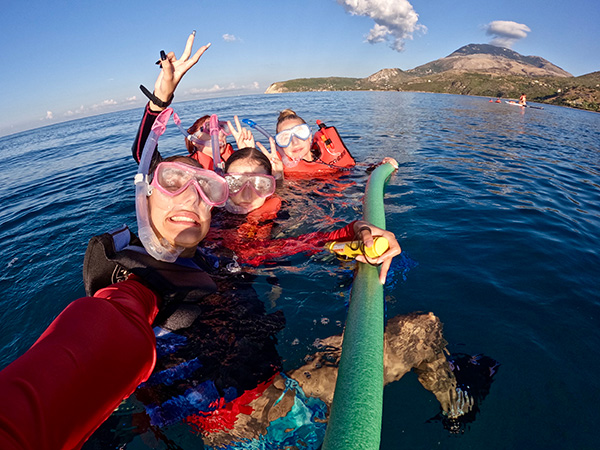
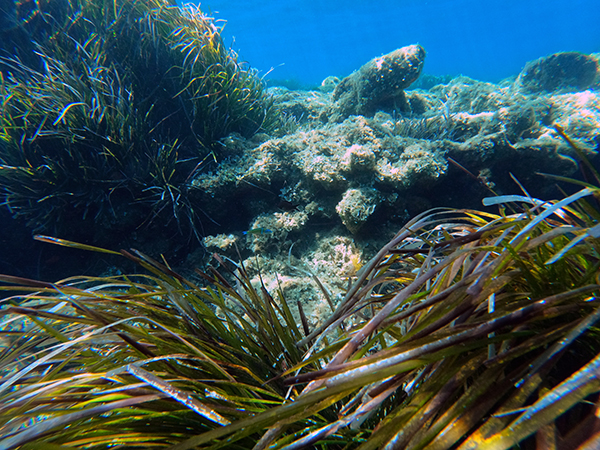
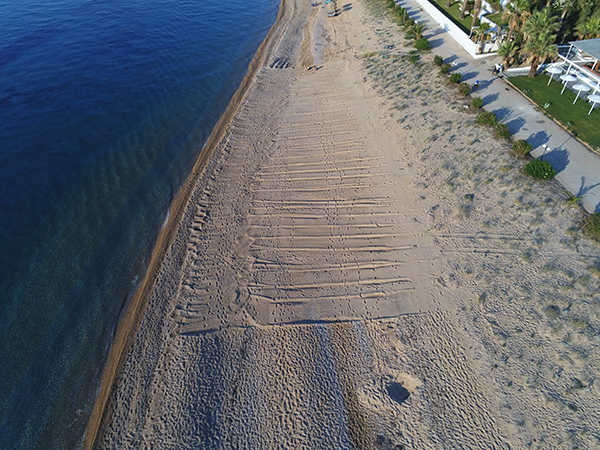
The importance
Posidonia oceanica conservation status was last assessed in 2018 around the Mediterranean (European Environment Agency). The outcome for Posidonia was “Poor – A habitat is in a situation where a change in management or policy is required to return the habitat to favourable status but there is no danger of disappearance in the foreseeable future”. (European Environment Agency, 2019) Therefore, further studying of posed threats to Posidonia is hugely important for the future of the species and the planet. In addition, The Framework Directive (WFD, 2000) and the Marine Strategy Framework Directive (MSFD, 2008) want to support the conservation into Posidonia to achieve and maintain an overall ‘Good Environmental Status’ (Mediterranean Posidonia Network, 2022).
Coastal sand-dune habitats are threatened yet play a huge part in maintaining plant and animal biodiversity, which contribute to coastal protection. There is a lack of research into dune system changes in Kefalonia highlighting the need for future studies to focus on it. (Sperandii et al., 2020)
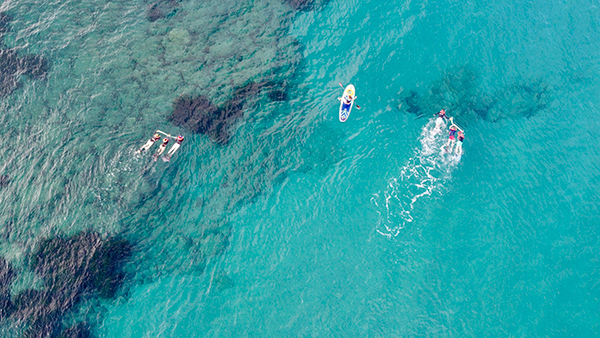
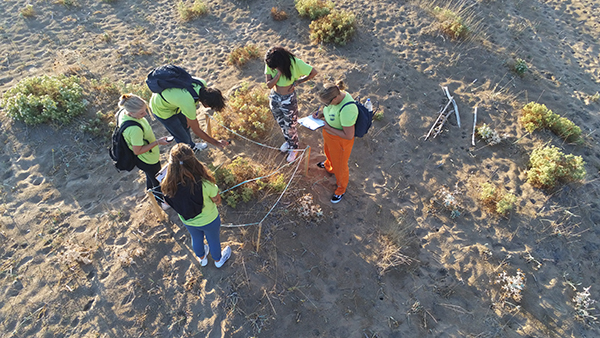
Volunteer Shift Information
The programme begins in early June and start days will be every second Thursday through September.
Volunteers will be getting involved with hands-on research that will allow them to demonstrate standard scientific methodology that can be used in the field. Working with others during their time means they will be building on their teamwork and leadership skills. They will understand the importance of protecting the dune and Posidonia ecosystems around Kefalonia. In addition, will have a clearer understanding of current climate concerns and the impact these can have on both marine and terrestrial environments. This information learnt will allow them to pass on details to others and spread public awareness of current issues.
Volunteers will split the majority of their time between exploring the Posidonia meadows and understanding the extensive dune systems found. While surveying both of these areas volunteers will be looking into what lives within the systems, creating topographies, and understanding pressures both ecosystems face. The data collected will be sorted and analysed by volunteers during our afternoon data entry shifts. In addition to this, volunteers will be working to keep the beaches of Kefalonia free from trash and debris, as well as taking part in drone surveys and reviewing the footage once the flight is complete. There will be free time every day and most evenings where volunteers can relax or take part in various activities including film and quiz nights. There will be two days off per week.
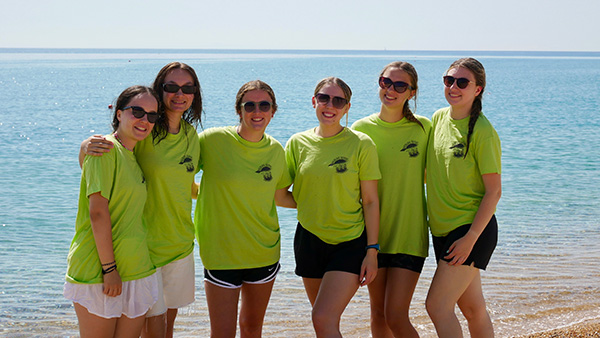
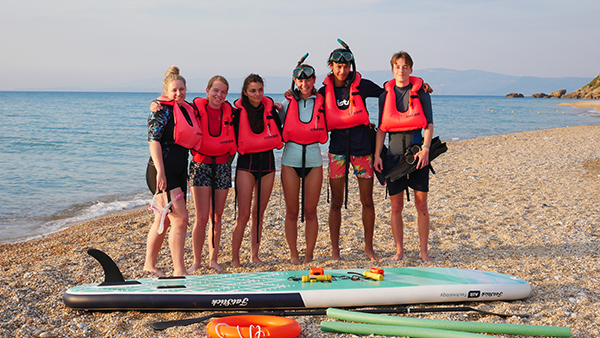
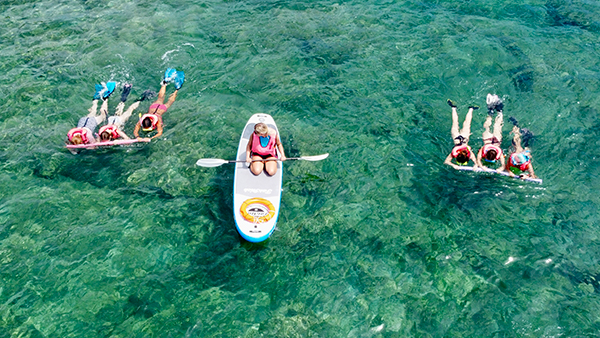
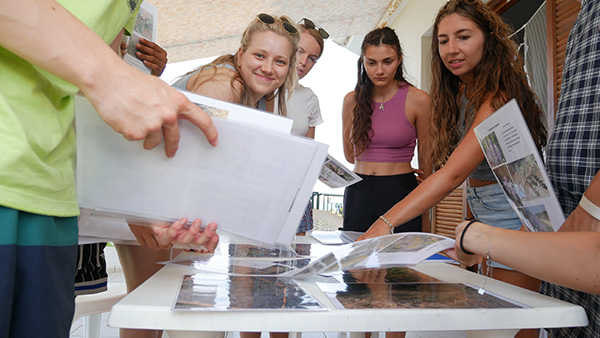
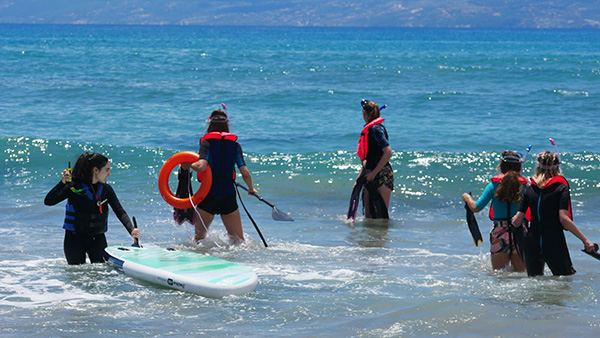
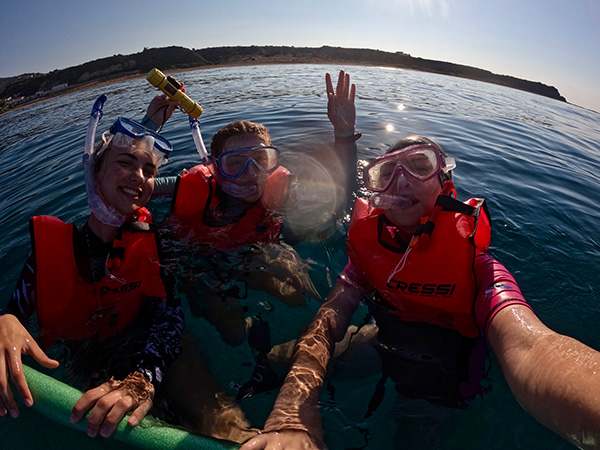
Rota
Early mornings are spent at the beach conducting sand dune habitat surveys or in the sea surveying the sea grass and the many species that inhabit it. During the afternoons there will be data entry shifts to review all data collected in the mornings. These will ensure the geotagged photos captured during the Posidonia and Dune surveys are classified to assess the sea floor/species coverage. There will also be some late afternoon beach shifts to observe drone studies, clean the beach or conduct habitat, species identification and vegetation studies. You will have free time some evenings. This time can be used to rest or explore the local area. Some evenings/nights, particularly in August and September, you will be monitoring light pollution on some of the most light-polluted beaches on the island. This may mean that you will spend the entire night out on the beach to help protect the area and different species affected by the light. You will have one day off in your first week and two days off for the week(s) following in order to explore other areas of the island or just walk down to the nearest beach and enjoy the sun and sea. If you are coming with a friend, please let us know so that we may schedule you the same days off and assign you the same room if you’re of the same gender. Please know if you’re coming with more than one person it may be difficult to schedule you on the same day off, but we will do our best!
To view a Skala Field Station sample schedule of what one of your weeks may be like, click here.
To view a Svoronata Field Station sample schedule of what one of your weeks may be like, click here.
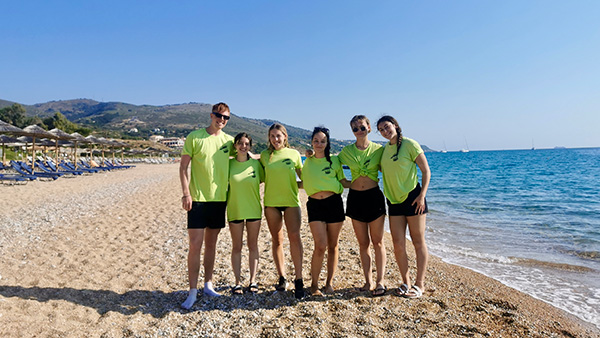
Safety
During their snorkel survey shifts, volunteers will snorkel within a pre-determined area and will be monitored by a safety supervisor on a paddleboard. The safety supervisor will accompany the research team throughout their in-water shift. All team members will wear a life jacket provided, will be limited to a small group size during snorkeling and will rest on land mid-shift before finishing the remaining shift in the sea. All snorkel shifts are weather-dependent and will be cancelled if the sea conditions are deemed unsafe.
Volunteers will be given a bicycle safety briefing. Helmets and safety vests are required and provided. Bicycling is only permitted during daylight hours.
Project Location
Skala (Thursday start dates)
Volunteers will share an apartment in a large villa. It’s located on a plot of land full of fruit and olive trees, providing lots of shade and a pleasant outdoor barbecue area. Each room accommodates up to four people (mixed gender), with a shared bathroom, kitchenette and a small living area. A pillow, flat sheet, and fitted sheet are provided for each bed. You can bring a light blanket or sleeping bag or rent a sleeping bag from the accommodation. We do our best to assign rooms based on gender. Please let us know if you are coming with friends of the same gender and we’ll try to place you in the same room. There is WIFI which is shared by all the volunteers, so it is suitable for messaging and emails, but typically not for video calls or live streaming.
The Skala Field Station is self-catered. Weekly expenses can be lowered with cooking, especially if you arrange a food share among your roommates. There are plenty of options at local stores for vegans and those with food intolerances or additional needs. Pizza and souvlaki can be delivered to the accommodation, or you can walk to a local restaurant to sit down and enjoy a Greek meal.
The accommodation is perfectly centered between the two main areas that will be monitored. The beach of the bustling town of Skala is a 2.3km walk and the tranquility of Mounda beach is a 1.5km walk.
Skala is known for its many bakeries, tavernas and restaurants. It has a long, beautiful beach with water activity centers, beach volleyball, and is backed by restaurants and beach bars. There are several grocery stores, cash points, pharmacies, and fresh fruit markets as well. A perfect place for shopping and free-time activities. Mounda is known for its tranquility and natural setting that has excellent snorkeling and pristine waters. A lovely place to relax and bask in the Mediterranean sun.
Svoronata (Thursday start dates)
Volunteers will share a room within an apartment complex by the sea. It’s located within a garden with a large variety of endemic plants and trees, providing lots of shade and a pleasant atmosphere. Each room accommodates up to four people (mixed gender), with a shared bathroom, kitchenette and a small living area. A pillow, flat sheet, and fitted sheet are provided for each bed. You can bring a light blanket or sleeping bag or rent a sleeping bag from the project. We do our best to assign rooms based on gender. Please let us know if you are coming with friends of the same gender and we’ll try to place you in the same room. There is WIFI which is shared by all the volunteers, so it is suitable for messaging and emails, but typically not for video calls or live streaming.
The Field Station has the option, for an extra cost of 75 euros per week, of simple vegetarian catered meals provided five days a week (food is not provided on the two days off). Breakfast will be the same throughout the week (Greek yoghurt with honey, toast with jam and a banana or apple). The lunch and dinner will be from a set menu ordered two weeks in advance. Some meal examples are pasta salad, grilled vegetable sandwich, green beans with red sauce, vegan mousaka, pasta with red sauce, Lentils etc. The meals will be varied throughout the week to avoid repetition, but all participants will be served the same item/meal unless there is a dietary issue that warrants a necessary swap. We must be notified two weeks before their Start Date for dietary issues so that the menu may be changed accordingly. On days off Pizza and souvlaki can be delivered to the accommodation, or you can walk to a local restaurant to sit down and enjoy a Greek meal. Additionally, you may also cook simple meals for yourself with the facilities on site.
The accommodation is located in Svoronata with Ammes Beach a five-minute walk away. Svoronata is a quaint beach town with several tavernas and restaurants. The local bus stops here daily as a part of the airport round trip that goes to Argostoli where there are several grocery stores, cash points, pharmacies, and fresh fruit markets. Argostoli is the Island’s capital and the perfect place for shopping and free-time activities.
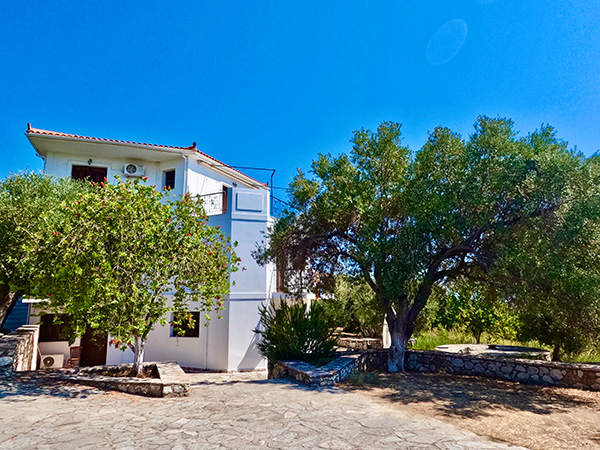
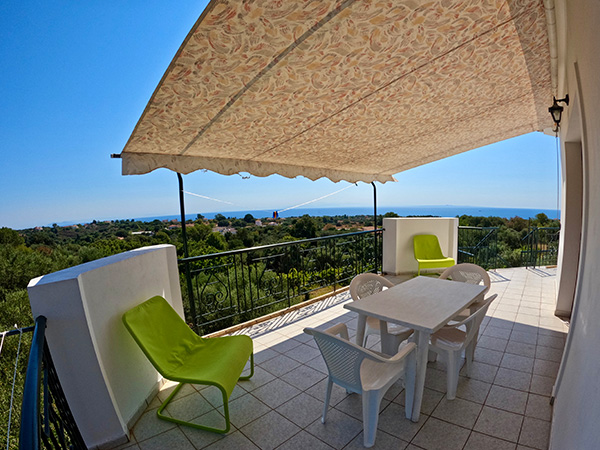
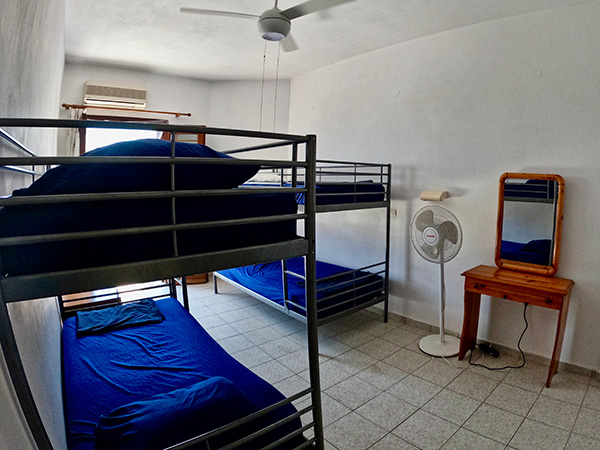
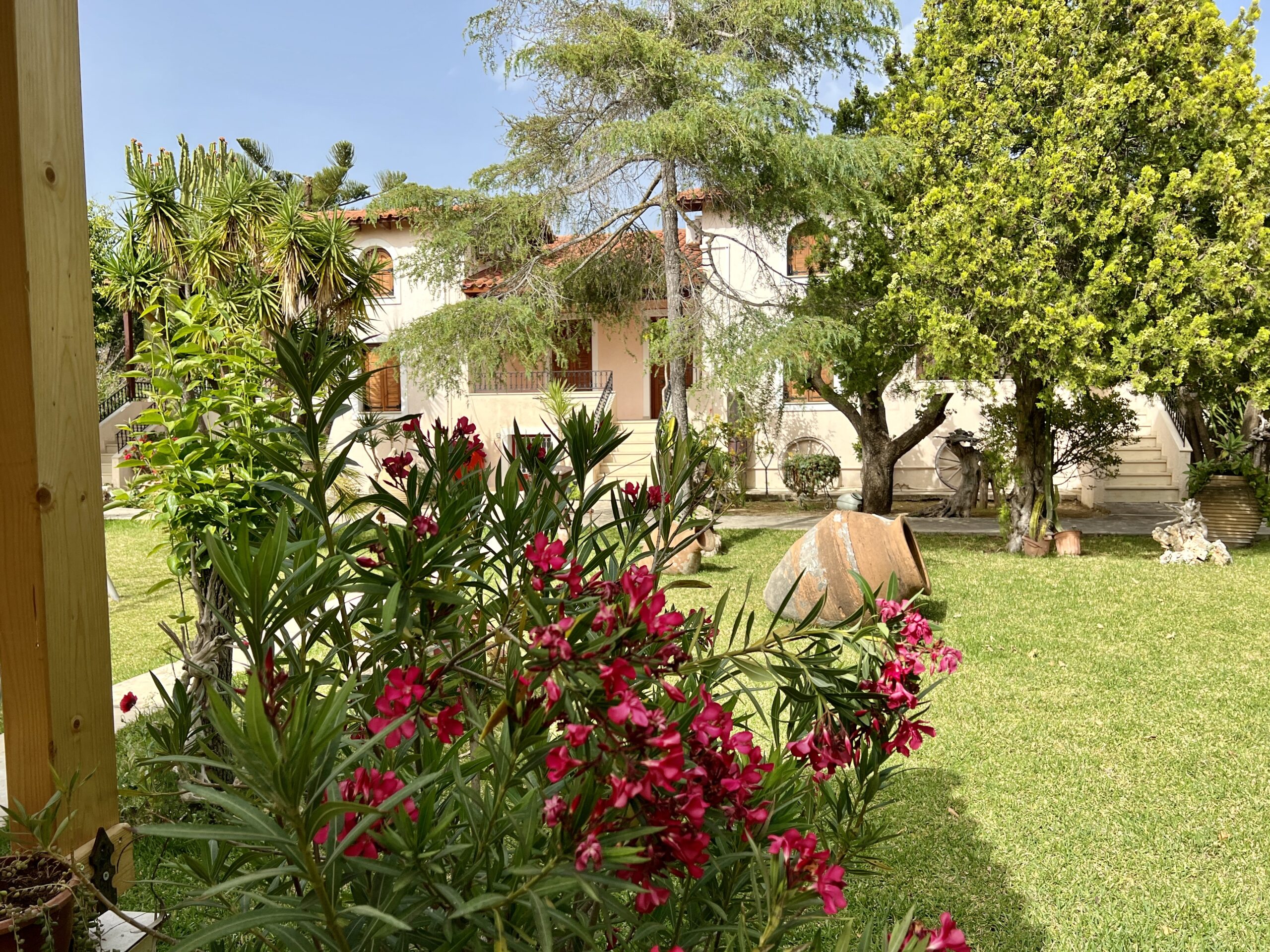
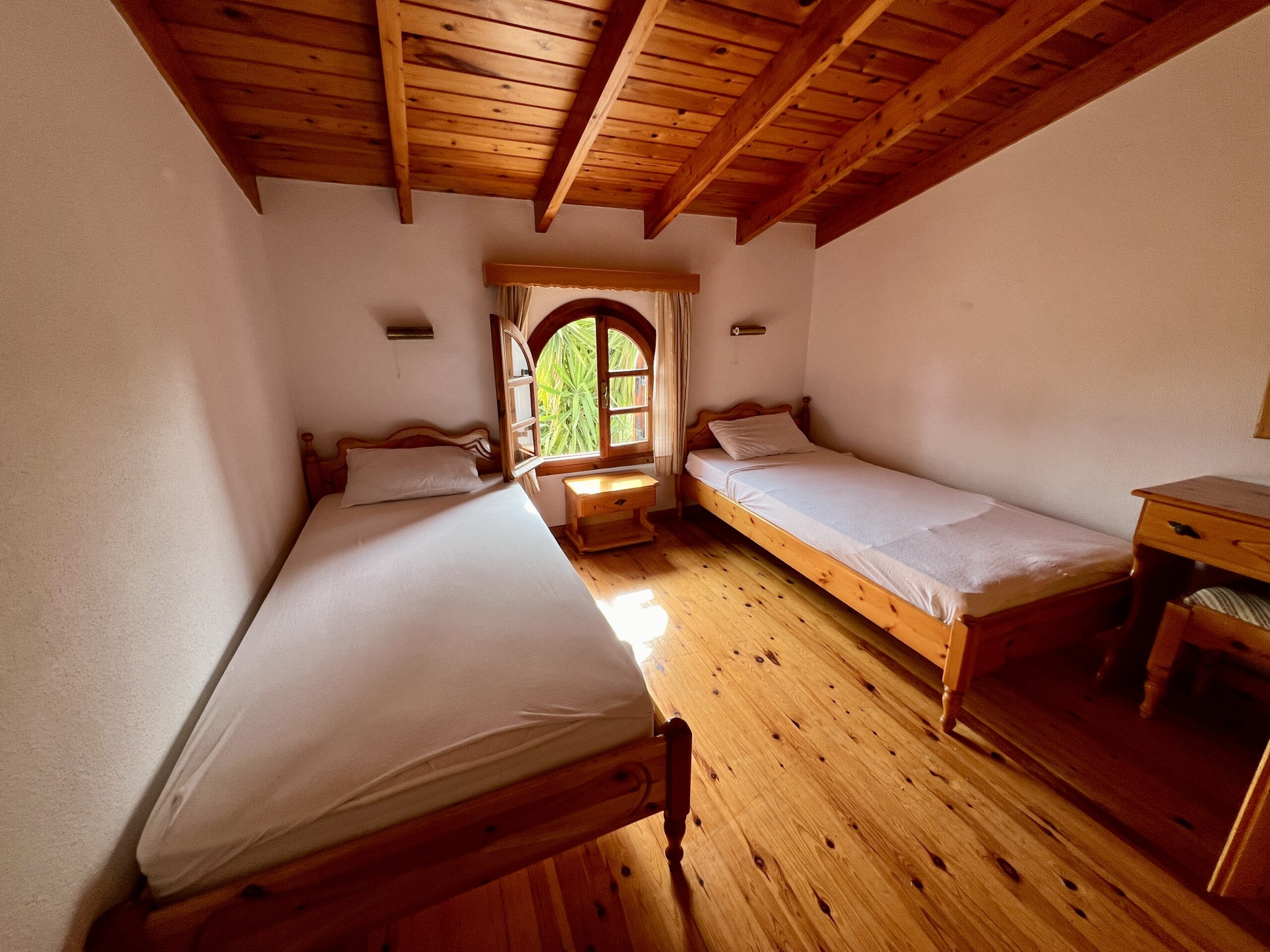
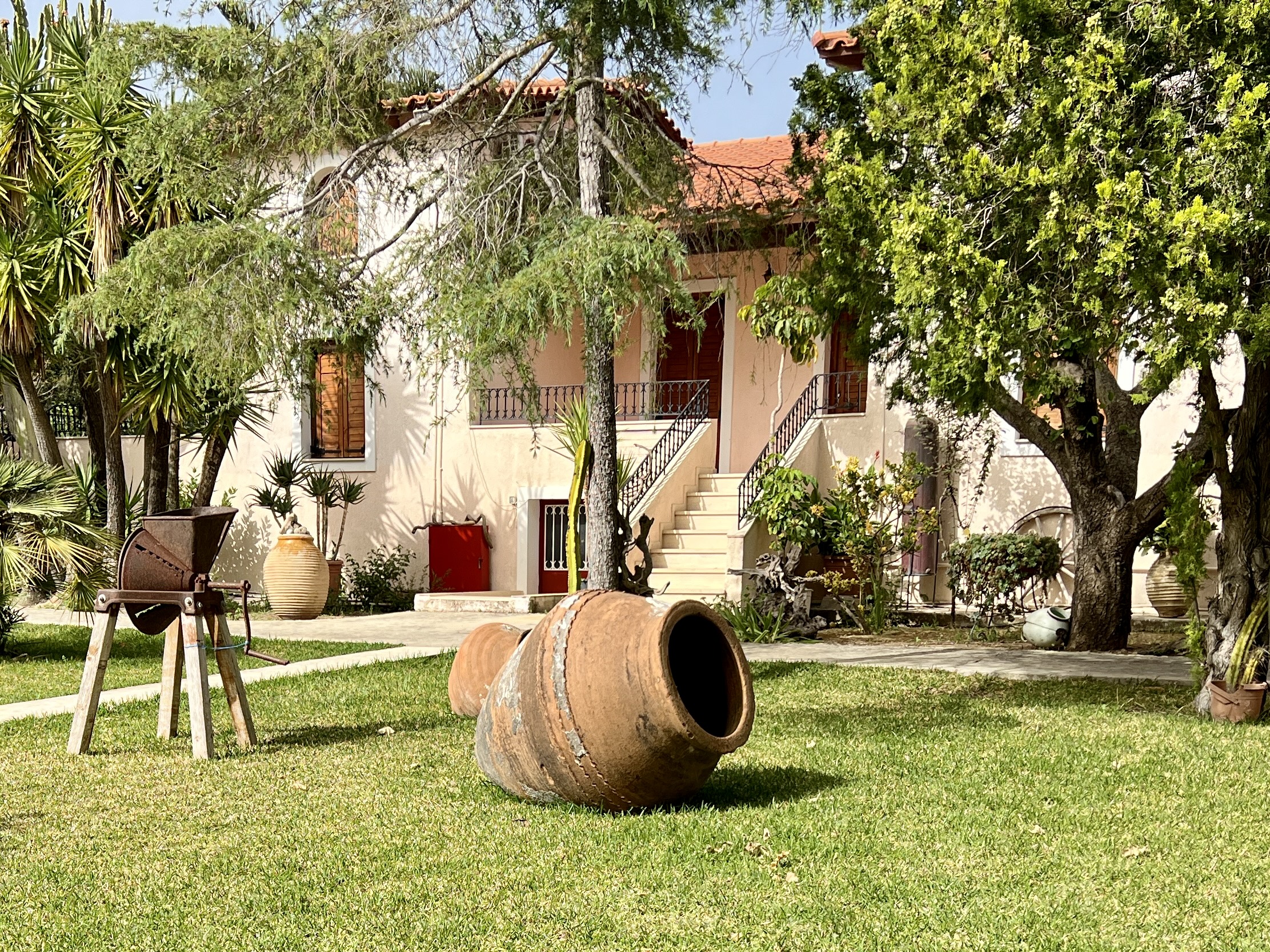
Key Differences in Field Stations
The Svoronata Field Station is situated closer to the capital of Argostoli. Both are close to beaches, mini-markets and restaurants. Skala is further from the capital but is touristic and has long pristine beaches nearby. The coastal bird surveys are only conducted at the Svoronata Field Station. The Svoronata Field Station offers the option (not included in the program cost) of catered meals 5 days a week (meals are not available on days off).
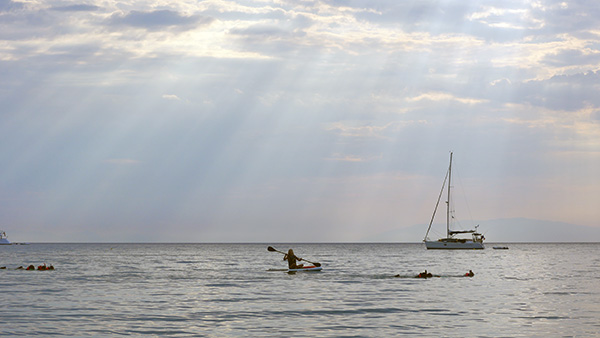
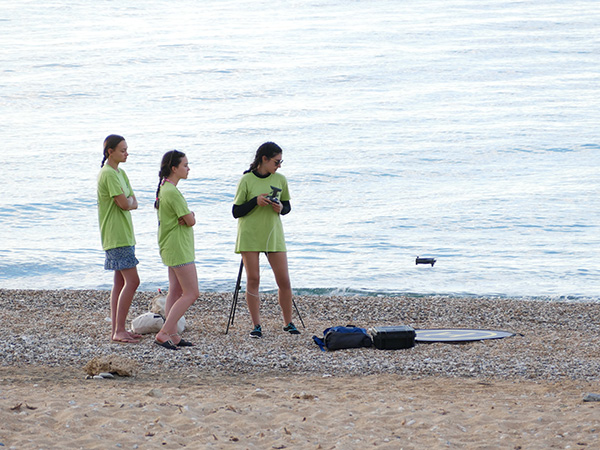
How do I volunteer?
Participation at the project is organized into two-week periods. You can volunteer for two or four weeks depending on availability. To apply click on the button below, where you will see all available starting dates and durations. Once you select a spot, you can fill in additional required information. When you complete the application, an account will be created for you at the Volunteer Console on our website, where you can view your reservation details and update your travel information when you arrange your travels.
Your spot will be held for you for three days so you can confirm your reservation with a payment. Payment options and types accepted will be available at the Volunteer Console.
Volunteering at Wildlife Sense is a great opportunity to receive internship or placement credits. You may also gain work experience or community service hours. A certificate with the hours you’ve earned will be available on your volunteer console after your departure. For any of the above you may need additional preparation please click here for more information regarding internships and research options.
School or university groups also have the option to take part in our Education Programme. Please email us for more information regarding the availability and programme overview.
What’s Included
Participation cost includes apartment-style shared accommodation with crockery and cookware provided, transport on the start and end dates to/from the airport (EFL) or Argostoli bus station, fins (can only be used on scheduled surveys), use of bicycles to get to shifts, our Researcher shirt, all necessary field training, project operation costs and onsite team leaders to assist during your stay.
The cost does not include travel to Kefalonia, travel/medical insurance, food, and personal expenses. To help you save on food costs, we have equipped our accommodation with fridges, cooking equipment, and utensils. We can also help advise on where to food shop. Volunteers regularly organize outings to one of the local restaurants in small or larger groups, so you’ll get to experience the local cuisine.
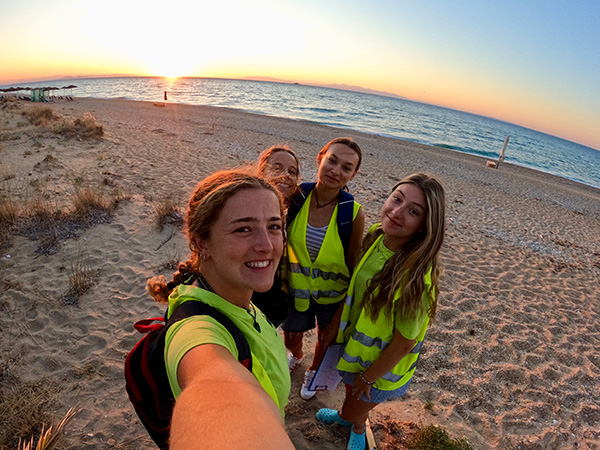
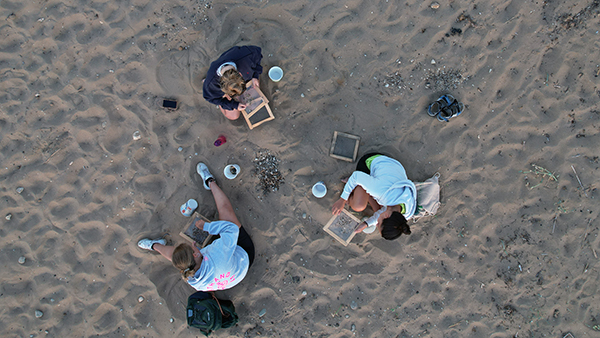
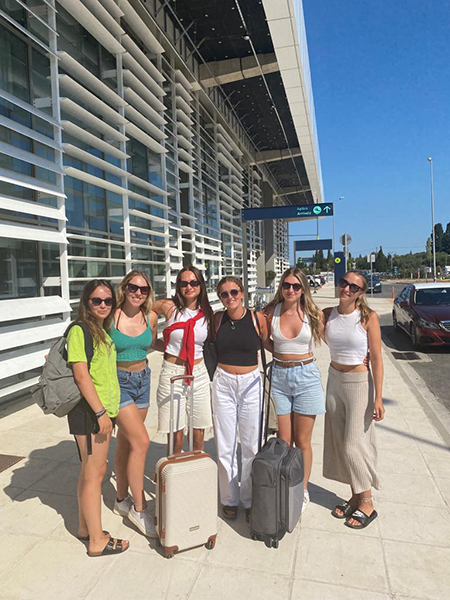
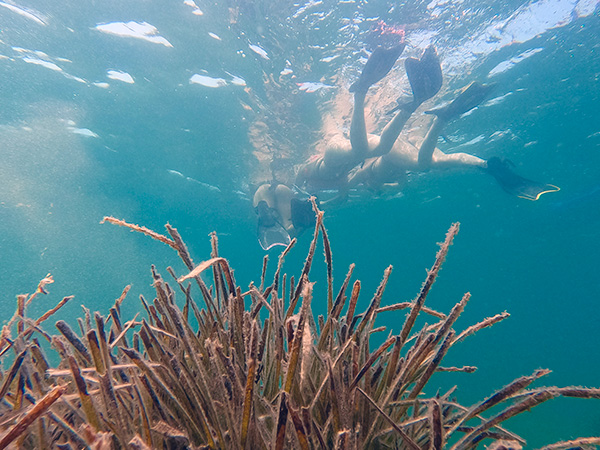
What happens next
1. Update information on the Volunteer Console
Once you have applied, you’ll receive a confirmation email with more information such as a packing list, a map of the area and popular activities to do with your time off, and information on how to get to the island and more. This information will also be available in your Volunteer Console. Within this area of the website, it’s important that you update your personal information and upload a badge photo for your Wildlife Sense Researcher badge. Once you have your flight details, upload them onto “Travel Info” tab within Volunteer Console.
If you need more information on how to get to Kefalonia, visit the Travel Information page.
2. Transport from Airport
Once we have your arrival details through the console, we will schedule your transport. We provide transport on start and end dates only. If you are arriving in Kefalonia before your start date or departing after your end date, we do provide transport, on your start and end date, to and from your hotel/AirBnB if it is within 3 kilometers of the airport (EFL) or directly in Argostoli town. You can always send us an email to be sure your hotel is within the designated transport zone.
3. Arrival at the accommodation
When you arrive at the at the Field Station, you will be shown your room by a member of the team. Shortly after settling into your room, you’ll receive a tour around the accommodation, be shown the weekly shift schedule and oriented to the local area and amenities that can be found nearby.
4. Training sessions
Training sessions begin on the evening of your start date. If arriving late in the day, you will be caught up on anything missed the following day. Training will then continue over the next few days alongside the field work. These training sessions will help acclimate the group and allow each volunteer to understand more about how and why we perform each shift.
Volunteer at our Coastal Conservation Programme
Join our international team of volunteers in Kefalonia Island

